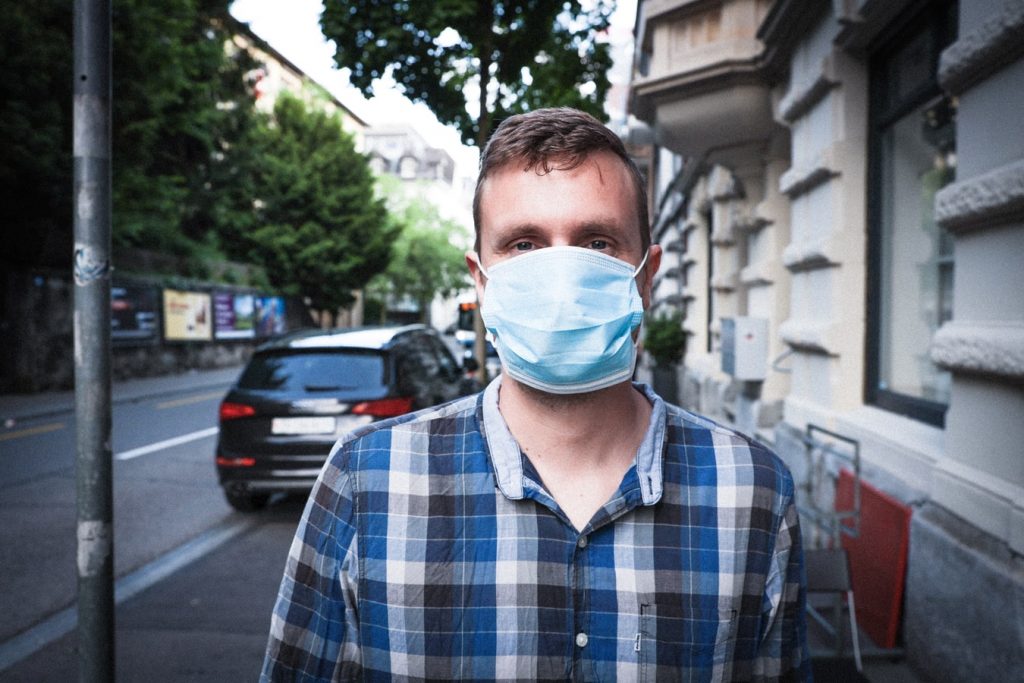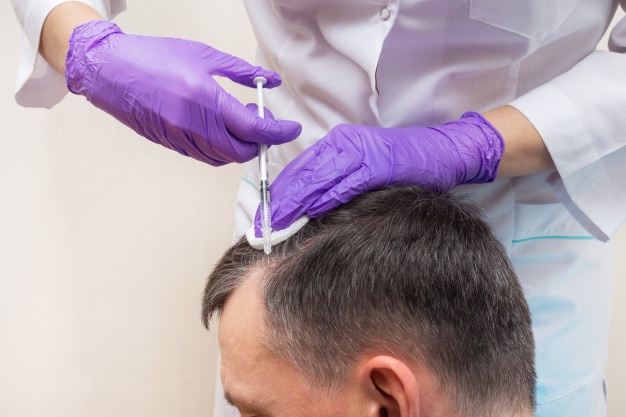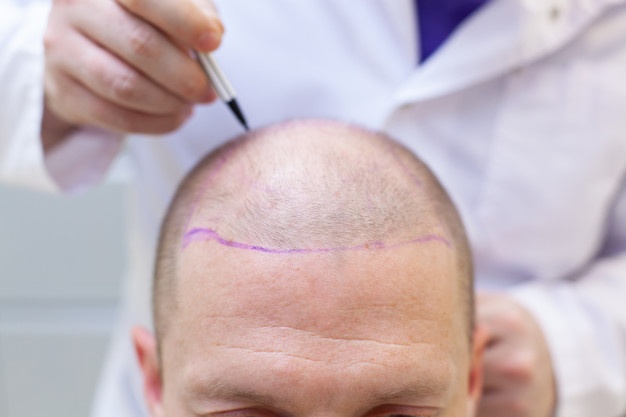
The first-known hair transplant surgery was carried out in 1952 by Dr. Norman Orentreich in New York City. Although technology has developed somewhat since, the concept of the procedure has remained the same, along with the end goal.
Hair transplantation surgery is the solution to the age-old problem of male pattern baldness. This permanent type of hair loss typically occurs in those with a genetic predisposition and affects approximately 35 million men in the USA alone.
In this report, we take a look in detail at hair transplants in Turkey during Covid-19. We look at what impact the pandemic is having on the market and how we see the next 12 months panning out.
How Many Hair Transplants Are Done Worldwide Per Year?
Fast-forward almost 70 years since the first procedure, and the hair transplant market has grown exponentially. There were 735,000 hair transplant procedures performed worldwide in 2019, which marked a 16% increase on the previous year. This is also a staggering 192% increase when compared to 2009 numbers. Looking specifically at statistics within the USA, the number of hair transplant procedures has increased by 75% in the last decade.
The hair restoration worldwide market size in 2019 is estimated to be $4.6bn, up from $4.1bn in 2016. With the surge in demand came an equal surge in supply, and patients now have access to thousands of specialist hair clinics. The procedure is growing in popularity throughout the world, with people from the USA and The UK seeing the biggest change in the past 3 years.
Hair Transplant Patients by Continent
| Country | 2019 Patients | % Change ’16 to ’19 |
|---|---|---|
| United States & Canada | 182,025 | 29% |
| Mexico & Central/South America | 61,348 | -7% |
| Europe | 106,949 | 35% |
| Asia/Australia | 196,630 | -1% |
| Africa/Middle East | 188,360 | 26% |
| 735,312 |
The Hair Transplant Market in Turkey

Turkey is the country that has benefited the most from the transplant boom, with approximately 1,600 carried out each day nationwide. Health tourism in general has become extremely popular in Turkey, generating $1bn a year. Americans and Brits make up the large majority of this market.
It is estimated that of all hair transplants performed each year, around 65% are carried out in Turkey alone. This makes it the number one destination in the world for hair restoration. The reason for this is glaringly obvious – hair transplant costs in Turkey are half of that in the UK, and as much as 75% cheaper than the USA.
The promise of cheap hair transplants and procedures with luxury accommodation is appealing to many. This is why people embark in their thousands to Turkey each year in hopes of a new head of hair. The impressive results and success rates are the reason behind the continued growth and popularity.
Covid-19 & Hair Transplants in Turkey
The effect of Coronavirus is felt worldwide, and it has been incredibly damaging to many sectors. Perhaps none more so than markets that require travel, including the travel tourism industry that Turkey relies so heavily on.
Turkey suffered a 75% decrease in tourist arrivals in the first half of 2020, welcoming only 4.5 million foreign tourists between January and June. Unfortunately, This is down from 18 million during the same period in 2019.
One of the primary reasons for this decline is fear. When still given the choice, many prospective patients opted to postpone their plans in favour of staying home and safe. Later in the year, this choice was removed with the implementation of travel restrictions. This included routes between the USA, the UK, and Turkey. With planes grounded, the hair transplant market has come to somewhat of a grinding halt.
For a short while, the UK Government placed Turkey on its ‘green list’, declaring the country safe for Brits to travel to. Despite this, a rapid number of other countries were being scratched off the list with little-to-no notice, causing a lot of uncertainty around travel. These worries were justified when the UK Government went on to announce that those arriving back to the country from Turkey on or after the 3rd of October would need to self-isolate.
In a bid to prevent Covid-19 infections, the International Society of Hair Restoration Surgery (ISHRS) has published a guide about Covid-protected facilities. The guide was given to clinics first to provide instructions on how to combat Coronavirus, and then given to patients for things to look for. Unfortunately, this is only useful for the small percentage of those who do not face travel restrictions in Turkey.
The Hair Transplant Turkey Outlook for 2021

While the short-term impact of Covid-19 has been devastating for a number of markets, one of the main concerns is the ability to recover. There are a number of industries that could take years to recover from the losses incurred by the pandemic.
Thankfully, for Turkey, the appetite for hair transplant procedures hasn’t gone away, it’s simply on hold. As soon as it is feasible to do so, we expect many of the waiting patients to begin traveling to the country again for their surgery. For those clinics that manage to survive this tough period, this will pose a fantastic opportunity. It is likely to drive high demand and increased visitor numbers.
The Coronavirus pandemic has taught medical professionals how to consult, diagnose and advise in whole new ways. We have been forced to adapt, and it hasn’t necessarily been a bad thing in this sense. This new ability to provide high standards of care through video communication tools like Zoom and Skype, connects international patients with their doctors in a way like never before. It’s likely this will continue shaping patient care long after the pandemic.
There is no reason to believe that the hair transplant market in Turkey won’t continue to survive in the post-Coronavirus world. It’s grown year-on-year consecutively for the last decade, with no signs of slowing down. If the Covid-19 vaccine is as close to production as we’re being made to believe, the market could begin to recover as soon as 2021.
Other Medical Tourism in Turkey for 2021
It’s no secret that the UK’s NHS is under incredible pressure, and has been long before Covid-19 hit. There were some 4 million patients on the waiting list for medical procedures before the pandemic. This number is estimated to be around 10 million by the end of 2020.
Many patients will not be willing to spend years on a lengthy waiting list. Once travel restrictions and quarantining are over, we expect this to cause a huge surge in the medical tourism market, especially in Turkey. We anticipate this demand being anything from dental procedures, to minor and even major surgeries.
Medical tourism in Turkey should be one of the first markets to recover post-Covid. It is likely that it will be stronger than ever before, picking up the slack from other countries like the UK. The pricing factor has always been a real selling point for travelling abroad for hair transplants and medical procedures. We anticipate this playing an even bigger role in future. With job losses and the financial impacts of Covid, most of the world’s population are going to have less money. With that, even the people who hadn’t considered Turkey for their procedure might have more incentive to do so.
There is no denying that the Coronavirus pandemic has had a detrimental effect on the market for hair transplants in Turkey. But it’s not all doom and gloom. We don’t know how long it will be until there is a vaccine, or when the world will start to recover, but Turkey will be one of the first places to do so.
The demand for both aesthetic and medical procedures will continue to grow. Turkey will remain to be one of the cheapest options for patients, particularly those travelling from the USA and the UK. The outlook for 2021 and beyond is a good one, it’s just a case of clinics being able to survive lengthy lockdowns in the meantime.
November 2020 News On Covid – The Search For A Vaccine
As previously discussed, the Covid virus has had a devastating effect felt in every corner of the globe. At the time of writing in mid-November, over 53 million have been infected with the virus. And the mortality rate running at just below 2.5% means over 1.3 million lives have been lost.
Herd Immunity
World leaders first thought that herd immunity would work. This theory was what influenced UK PM Boris Johnson’s decision to act more slowly than its European neighbours. Famously, this was an almost fatal error. Weeks later, Johnson admitted that ‘it was touch and go there for a while,’ after his stint in intensive care.
But, world leaders have been faced with a double-edged sword. Both sides being opposing. Shut down the economy and save lives. Or open the economy and sacrifice lives. Neither being satisfactory.
On the other side of the Atlantic, Trump’s consideration of herd immunity and mishandling of the virus has also been his undoing. His favouring of not shutting down the economy coupled with a systemic refusal to accept science has been a significant factor in his ousting.
News Of A Vaccine
Herd immunity, where people are allowed to get sick, has simply not been an option as the death toll’s sheer magnitude would have been too high a price to pay. So, we have waited in the hope that the billions poured into a vaccine would pay off.
Days after the declaration of Trump’s defeat came, so did the news of a vaccine. Not in time to save his political life but will it be able to save actual lives globally? And what is the outlook for needy economies such as that of the Turkish health tourism industry?
The Pfizer vaccine thought to be 90% effective is undoubtedly great news. But as yet, we are still not where we need to be in terms of delivering a vaccine.
Early Days
These are results emerging from a phase 3 trial, but there still needs to be further proof that the vaccine is both safe and effective. The companies behind the trial, Pfizer and BioNTech, will apply for emergency approval to use the vaccine by the end of November.
The vaccine works in two doses, like some over vaccines, with the second dose being given three weeks after the preliminary dose. Creating a vaccine has many challenges; first, scientists have to, of course, develop it. They need to trial it and prove it works; then, there are legal and administrative battles with authorities to approve the vaccine. After that, they need to be able to produce it. In the case of the corona vaccine, everyone man, woman, and child want this vaccine, so mass production is also a huge obstacle to overcome. That being said, Pfizer says they hope to have 50 million doses available by the end of 2020 and 1.3 billion doses by the end of 2021.
Drawbacks To The Pfizer Vaccine
However, this particular vaccine has a further hurdle to overcome. The vaccine needs to be stored lower than minus 80C. This, in it of itself, presents a significant issue. This is not a vaccine that you will be able to access at your local doctor’s surgery. Only urban hospitals are going to be able to afford the deep freezing facilities to store the vaccine. You are then going to have to have people (who are potentially vulnerable) going to one of the most unsafe places you can be, a hospital full of germs and other viruses.
Regardless of the difficulties to overcome, this is still great news, and there are also several other vaccines at similar stages in trials that may also become available in 2021.
Looking Ahead
The emergence of this and several other vaccines means that there does seem like there is light at the end of the tunnel. With vaccines being administered and other preventative measures, it seems likely that air travel may become far more open by mid-2021.
This is excellent news for countries and communities that have been hit hard and rely heavily on tourism. It seems highly possible that Brits may get their holiday abroad next year. People who have put off travelling to health tourism will be looking to get that fix including that new head of hair.














